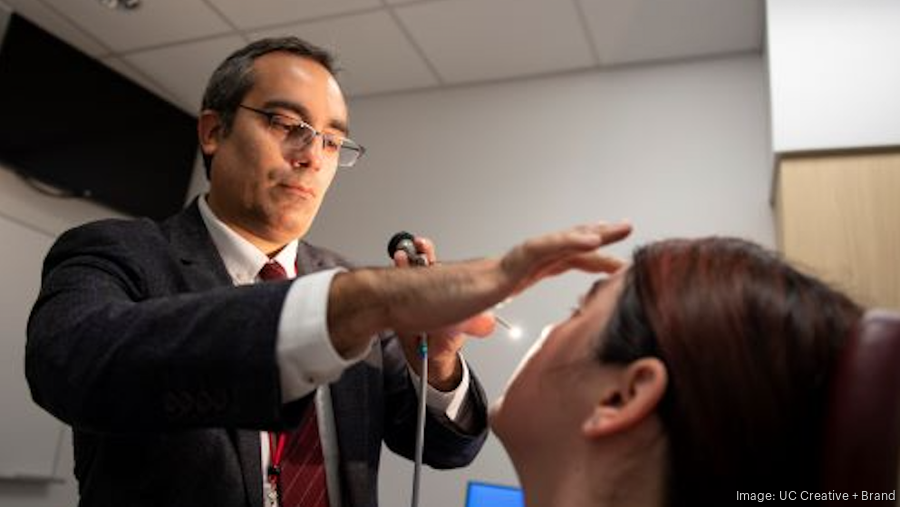Depression or anxiety in Covid-19 patients might be linked to the loss of smell and taste, according to a new study led by a doctor at the University of Cincinnati College of Medicine.
“This is an unexpected and shocking result,” said Dr. Ahmad Sedaghat, a UC Health physician who specializes in diseases of the nose and sinuses.
It was logical to assume that depression or anxiety associated with Covid-19 might be caused by difficulty breathing, coughing or high fever, which could be so severe as to indicate a person might die.
However, “none of these symptoms that portended morbidity or mortality was associated with how depressed or anxious these patients were,” Sedaghat said in a statement issued by the UC College of Medicine. “The only element of Covid-19 that was associated with depressed mood and anxiety was the severity of patients’ loss of smell and taste.”
Sedaghat, who is director of rhinology, allergy and anterior skull base surgery in the UC College of Medicine’s Department of Otolaryngology-Head and Neck Surgery, examined the characteristics and symptoms of 114 men and women with Covid-19 over a six-week period at Kantonsspital Aarau in Aarau, Switzerland.
Patients who tested positive for Covid-19 at the hospital between March 3 and April 17 were identified and contacted by telephone up to three times to complete the study. Patients who were hospitalized were also approached in person, but those in intensive care units were excluded.
The study examined the severity of the loss of smell or taste, nasal obstruction, excessive mucus production, fever, cough and shortness of breath among patients with Covid-19.
Despite the occurrence of symptoms such as shortness of breath associated with severe manifestations of Covid-19, only the severities of smell and taste loss were associated with depressed mood and anxiety, the study concluded.
More than 21% of the people in the study reported being depressed every day, and 47%, reported being depressed at least several days each week. One out of 10 people reported severe anxiety, while about four out of 10 reported mild anxiety.
Results of the study, published online in The Laryngoscope, suggest that the novel coronavirus that causes Covid-19 affects the central nervous system.
“These symptoms of psychological distress, such as depressed mood and anxiety, are central nervous system symptoms if they are associated only with how diminished is your sense of smell,” Sedaghat said. “This may indicate that the virus is infecting olfactory neurons, decreasing the sense of smell, and then using the olfactory tract to enter the central nervous symptom.”
Researchers have long thought that the olfactory tract might be the primary way that coronaviruses enter the central nervous system, Sedaghat said. Studies using mouse models of SARS, or severe acute respiratory syndrome, have shown that the pathway for communication of odors from the nose to the brain was a gateway into the central nervous system and infection of the brain.
“The unexpected finding that the potentially least worrisome symptoms of Covid-19 may be causing the greatest degree of psychological distress could potentially tell us something about the disease,” Sedaghat said. “We think our findings suggest the possibility that psychological distress in the form of depressed mood or anxiety may reflect the penetration of SARS-CoV-2, the virus that causes Covid-19, into the central nervous system.”
Infrequent but severe symptoms of Covid-19 such as seizures or altered mental status have been described by patients, but depression and anxiety might be considerably more common, Sedaghat said.
Funding for the study came from Kantonsspital Aarau. First author of the study was Dr. Marlene Speth, and other co-authors included Dr. Thirza Singer-Cornelius, PhD Michael Oberle, Dr. Isabelle Gengler and Dr. Steffi Brockmeier.
Total local enrollment
| Rank | Prior Rank | Business name (*not previously ranked) |
|---|---|---|
1 | 1 | University of Cincinnati |
2 | 2 | Miami University |
3 | 3 | Northern Kentucky University |
